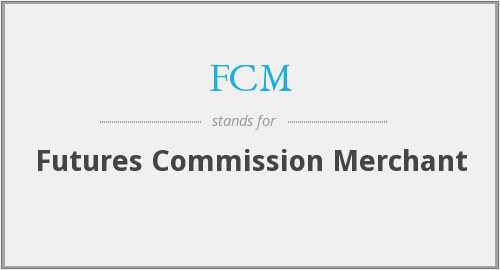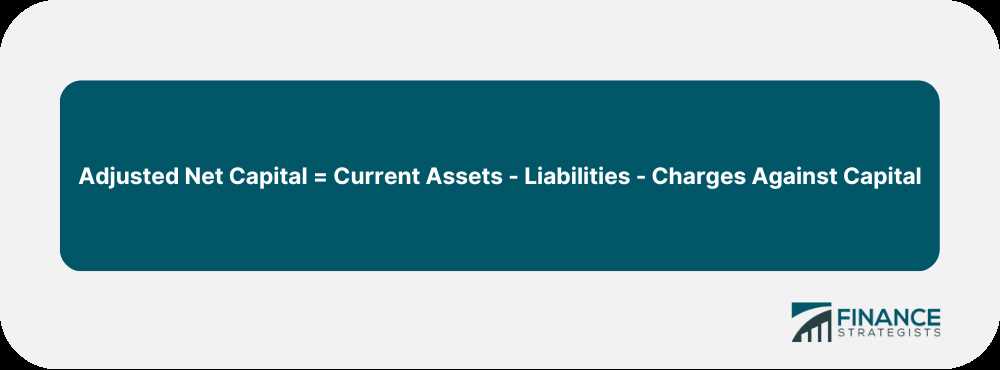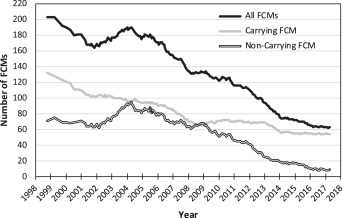What is a Futures Commission Merchant (FCM)?
A Futures Commission Merchant (FCM) is a financial institution or individual that acts as an intermediary between traders and the futures market. They play a crucial role in facilitating futures trading by providing a platform for traders to buy and sell futures contracts.
Role of a Futures Commission Merchant (FCM)

The role of an FCM is to execute trades on behalf of their clients in the futures market. They act as a trusted intermediary, ensuring that trades are executed accurately and efficiently. FCMs also provide various services to traders, including:
- Trade execution: FCMs have direct access to the futures exchanges and can execute trades on behalf of their clients.
- Clearing and settlement: FCMs handle the clearing and settlement of trades, ensuring that funds and securities are properly transferred between parties.
- Margin requirements: FCMs monitor and enforce margin requirements, which are the funds that traders must deposit to cover potential losses.
- Account management: FCMs provide account statements, trade confirmations, and other administrative services to their clients.
By utilizing the services of an FCM, traders can access the futures market and take advantage of price movements in various commodities, currencies, and financial instruments.
Role of a Futures Commission Merchant (FCM)
A Futures Commission Merchant (FCM) plays a crucial role in the financial futures trading industry. As an intermediary between traders and the futures market, an FCM facilitates the execution of futures contracts and provides various services to market participants.
Execution of Trades

One of the primary responsibilities of an FCM is to execute trades on behalf of their clients. They receive orders from traders and execute them in the futures market. This involves entering into contracts, buying or selling futures contracts, and ensuring that the trades are executed accurately and efficiently.
Clearing and Settlement

FCMs also handle the clearing and settlement process for their clients’ trades. After the trades are executed, the FCM ensures that the necessary documentation and paperwork are completed to finalize the transaction. They work with clearinghouses and other market participants to ensure the smooth settlement of trades.
Risk Management
Another important role of an FCM is to provide risk management services to their clients. They help traders assess and manage the risks associated with futures trading. This includes providing margin requirements, monitoring market conditions, and advising clients on risk mitigation strategies.
Overall, a Futures Commission Merchant (FCM) acts as a trusted intermediary, executing trades, facilitating clearing and settlement, and providing risk management services to participants in the financial futures trading market.
Registration
Registering as a Futures Commission Merchant (FCM) is a crucial step for individuals or firms who want to participate in financial futures trading. FCMs play a vital role in facilitating the trading of futures contracts on behalf of their clients.
What is the process of registration?
Once the application is submitted, it undergoes a thorough review by the regulatory authority. This review includes an assessment of the applicant’s financial stability, operational capabilities, and compliance with regulatory requirements.
Requirements for registration
To be eligible for FCM registration, applicants must meet certain requirements set by the regulatory authority. These requirements may include:
- Minimum capital requirements: FCMs are typically required to maintain a certain level of capital to ensure their financial stability and ability to meet their obligations to clients.
- Background checks: The regulatory authority may conduct background checks on the applicant and its key personnel to ensure they have the necessary qualifications and integrity to operate as an FCM.
- Compliance procedures: FCMs must have robust compliance procedures in place to ensure they adhere to all relevant laws and regulations governing futures trading.
Benefits of using an FCM
Using an FCM offers several benefits to traders and investors:
- Access to markets: FCMs provide their clients with access to a wide range of futures markets, allowing them to trade various asset classes, including commodities, currencies, and financial instruments.
- Execution services: FCMs execute trades on behalf of their clients, ensuring efficient and timely execution of orders.
- Risk management: FCMs offer risk management tools and services to help clients manage their exposure to market risks.
- Regulatory compliance: FCMs are subject to strict regulatory oversight, which helps protect the interests of traders and investors.
Overall, registration as an FCM is a necessary step for individuals or firms looking to engage in financial futures trading. It provides access to markets, execution services, risk management tools, and regulatory compliance, making it an essential component of a successful trading strategy.
Requirements for Futures Commission Merchant (FCM) Registration

-
Financial Requirements
FCMs are required to meet certain financial standards to ensure they have the necessary capital to operate in the market. This includes maintaining a certain level of net capital, which serves as a cushion against potential losses.
-
Operational Requirements
FCMs must have robust operational systems and procedures in place to handle the complexities of futures trading. This includes having adequate risk management controls, internal controls, and compliance programs.
-
Recordkeeping and Reporting Requirements
FCMs are required to maintain accurate and up-to-date records of their transactions and financial activities. They must also submit regular reports to regulatory authorities to ensure transparency and accountability.
-
Compliance Requirements
FCMs must comply with all applicable laws, regulations, and rules set forth by regulatory authorities. This includes adhering to anti-money laundering (AML) and know-your-customer (KYC) requirements.
-
Risk Management Requirements
FCMs are responsible for implementing effective risk management practices to mitigate potential risks and protect the interests of their clients. This includes having risk management policies, procedures, and controls in place.
By meeting these requirements, FCMs can ensure that they are operating in a safe and secure manner, providing a reliable and trustworthy platform for financial futures trading.
Process of Futures Commission Merchant (FCM) Registration
Registering as a Futures Commission Merchant (FCM) involves several steps that must be followed to ensure compliance with regulatory requirements. The process typically includes the following:
1. Application Submission:
2. Background Checks:
As part of the registration process, the regulatory authority will conduct thorough background checks on the FCM and its key personnel. This may include reviewing criminal records, financial history, and regulatory compliance records. Any negative findings could result in the denial of the registration application.
3. Financial Requirements:
FCMs are required to meet certain financial requirements to ensure they have sufficient capital to operate and meet their obligations to customers. These requirements may include maintaining a minimum net capital level and segregating customer funds from the FCM’s own funds.
4. Compliance Policies and Procedures:
FCMs must establish and maintain comprehensive compliance policies and procedures to ensure they operate in accordance with regulatory requirements. This includes implementing systems and controls to monitor and report on trading activities, as well as conducting regular audits and risk assessments.
5. Risk Management:
FCMs are responsible for managing the risks associated with their trading activities. This includes implementing risk management systems and controls, such as position limits and margin requirements, to ensure the FCM can meet its obligations to customers and maintain the integrity of the market.
6. Ongoing Reporting and Recordkeeping:
Once registered, FCMs are required to submit regular reports to the regulatory authority, including financial statements, risk exposure reports, and compliance reports. They must also maintain detailed records of their trading activities, customer transactions, and communications to demonstrate compliance with regulatory requirements.
By following this process, a Futures Commission Merchant (FCM) can ensure that it meets all regulatory requirements and can operate legally and responsibly in the financial futures trading industry.
Benefits of Using a Futures Commission Merchant (FCM)
| 1. Expertise and Knowledge | |
| 2. Access to Multiple Markets | FCMs typically have access to a wide range of markets, including commodities, currencies, and interest rates. This allows traders to diversify their portfolios and take advantage of various investment opportunities. |
| 3. Risk Management | FCMs offer risk management tools and strategies to help traders mitigate their exposure to market volatility. They can provide hedging solutions and assist in developing risk management plans tailored to individual trading goals. |
| 4. Efficient Execution | By using an FCM, traders can benefit from efficient order execution and fast trade confirmations. FCMs have advanced trading platforms and technologies that enable quick and reliable trade execution. |
| 5. Regulatory Compliance | FCMs are regulated entities that must adhere to strict financial and operational requirements. By working with an FCM, traders can have confidence in the integrity and security of their trading activities. |
| 6. Customer Support | FCMs offer dedicated customer support to assist traders with any inquiries or issues they may encounter. Whether it’s technical assistance or account-related queries, FCMs strive to provide prompt and reliable support. |
Overall, utilizing a Futures Commission Merchant (FCM) can enhance a trader’s experience in the financial futures market. From expert guidance to efficient execution and risk management, FCMs offer a range of benefits that can help traders achieve their investment objectives.

Emily Bibb simplifies finance through bestselling books and articles, bridging complex concepts for everyday understanding. Engaging audiences via social media, she shares insights for financial success. Active in seminars and philanthropy, Bibb aims to create a more financially informed society, driven by her passion for empowering others.
